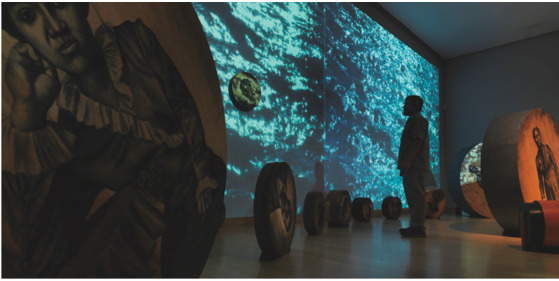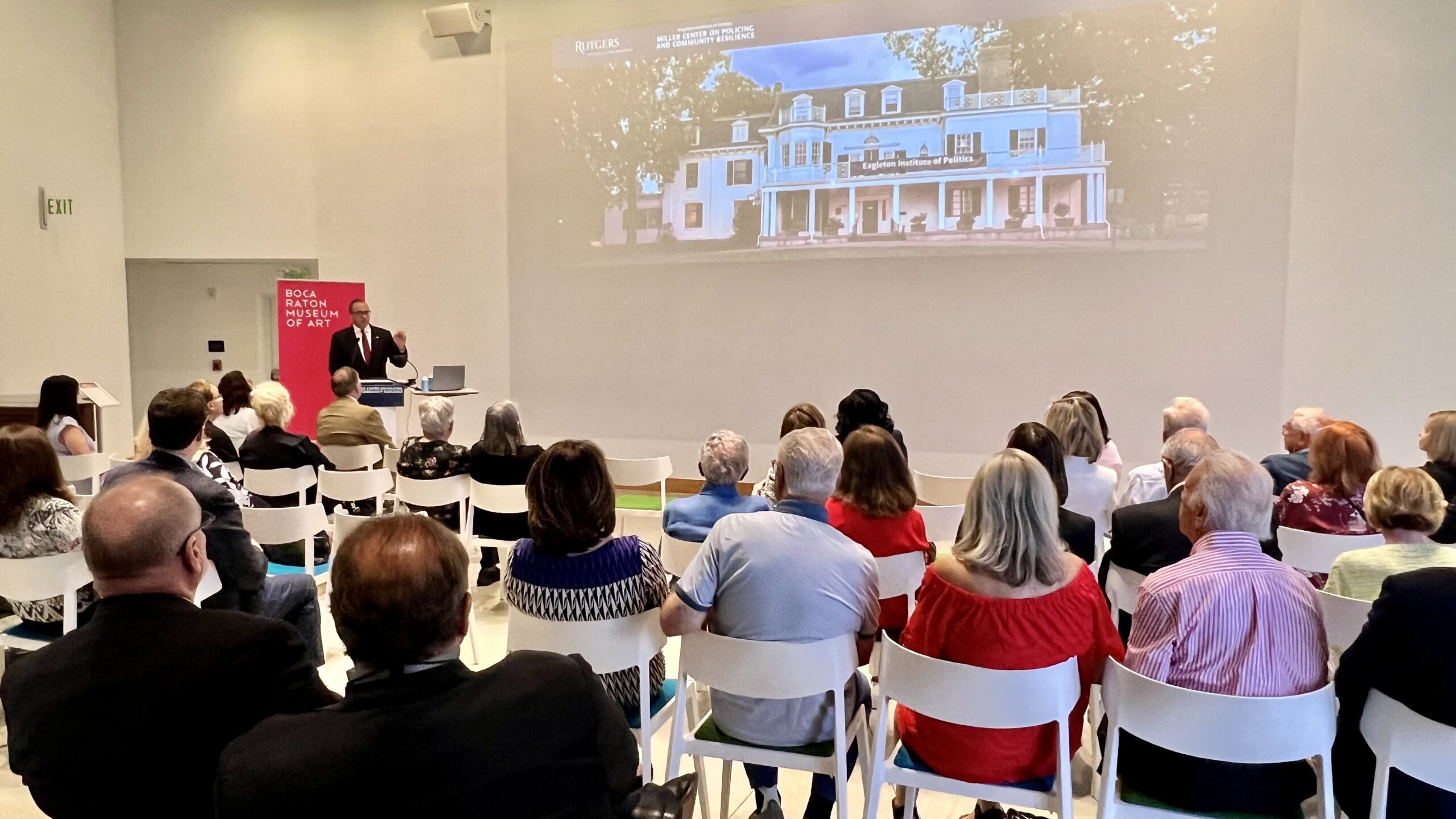A Message from the Director of Eagleton: Juneteenth
June 19, 2023–This year’s annual Paul Miller Distinguished Lecture was delivered by Rutgers University President Jonathan Holloway at the Boca Raton Museum of Art. The occasion was the world premier exhibit in Boca Raton of “Passages,” displaying MacArthur Genius Award-Winning artist Whitfield Lovell’s “internationally renowned … drawings inspired by photographs of unidentified African-Americans taken between the Emancipation Proclamation and the Civil Rights movement.”


President Holloway’s remarks, entitled “Being In The Room Where It Happens: Power, Invisibility, and Silence,” discussed how Lovell takes “archival photographs of nameless people, people otherwise lost to history,” and draws them exquisitely in charcoal in settings that could be real or imagined, but that raise issues associated with identities fractured by a society whose racism silenced their American stories, and rendered them invisible. Referring to one depiction of a woman dressed for a journey but set in a neatly furnished room, with place settings on the table, Holloway asked: “Is she a ghost? Was this the home she left behind? Was it a home she only cared to imagine? Would she ever return? … Was she able to look past all the times she was looked past by people uninterested in her story? … You can’t tell if she’s appearing or fading, and this I find the most difficult aspect of her story. We’ll never know. Her image is an echo of her silence.”
Whitfield Lovell’s art, and President Holloway’s scholarship and Miller Lecture, challenge us to reckon with the legacy of systematically fractured identities like those depicted in Passages. Whitfield Lovell’s art elevates the dignity and life stories of nameless faces; at Rutgers and Eagleton, we are obliged to do the same for the faceless names who have been a neglected part of our heritage. We have no images to celebrate, but we do have names to lift up: Flora, Phyllis, Clara, Eliza, Ann, Tony, Prince, and Elizabeth.
At Eagleton, and on the Douglass, Cook, and College Avenue campuses, we do our work on property donated by the Neilson family. The Wood Lawn mansion, which houses Eagleton, was built in 1830, less than a decade after the family began freeing its slaves in 1822. Every person named above was a slave held by the Neilsons. The Neilson family has been justly celebrated — with statues, dorms, dining halls and streets named in its honor — for its generosity to the university and the city of New Brunswick, for its patriotism in 1776 and after, and for its progressive values in supporting the foundation of Douglass College.
It is long past time, however, to honor those whose unpaid labor and unrecognized humanity enabled that generosity. Those people – Flora, Phyllis, Clara, Eliza, Ann, Tony, Prince, and Elizabeth – and their predecessors and descendants are an essential piece of our story at Rutgers and Eagleton. On this first annual New Jersey commemoration of Juneteenth, we celebrate their lives and recommit to our core commitment to centering marginalized voices.
The fracturing of human identity devastates individuals, but as President Holloway’s and Whitfield Lovells’ work makes clear, the ultimate victim is a fractured American identity. Without these voices America’s story, to paraphrase President Holloway, resounds with their silence. With them, we can truly lift every voice and sing.
John J. Farmer, Jr.
Director, Eagleton Institute of Politics

